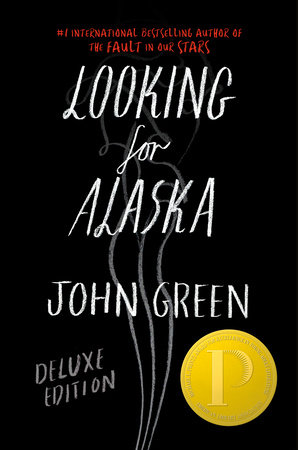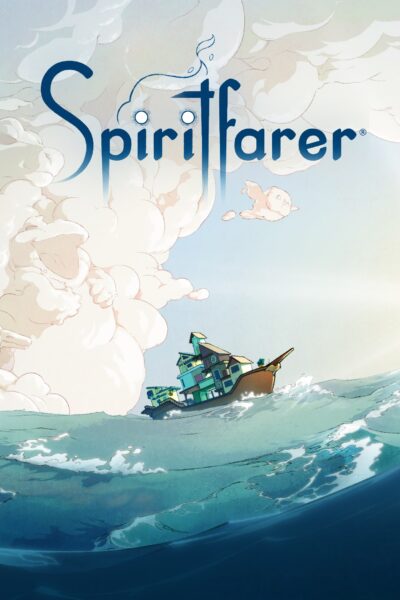Describing my Experience
I knew this girl once, and in one of our many conversations about books, movies, and music, she had briefly mentioned she had read a new book. She said something like, “I read a book and the main character reminded me of you”. She followed it with “She kills herself in the end, she was beautiful though”. I was instantly curious about the story, but in my fear of being perceived, I wasn’t quite curious enough to read it. Years later, in my desperate attempt to grip a dying relationship with this girl I had known, I read Looking for Alaska purely to try to see how she saw me.
The book is a John Green coming of age story about a boy named Miles, who attends boarding school for the first time. From my memory, it’s a relatively standard coming of age story in terms of plot, but what drew me in were the characters. Miles (who gets the nickname Pudge) ends up becoming close with his roommate, who they call The Colonel, and another friend Takumi. Most importantly, he meets a girl named Alaska. She’s an enthralling character as I can best describe her. The first half of the book is spent setting up the characters in depth, and I could not for the life of me see myself in Alaska. Rather, I identified with the main narrator, as I so often do.
The struggle within the story is that Miles falls in love with Alaska, who has an older boyfriend that she is loosely committed to. It becomes established that Alaska has these internal battles with herself that sort of loom, but it doesn’t become all consuming until the end of her storyline. That was the only time I saw myself in this character. The book is set up in halves, one before Alaska’s death and one after. In the last moments of the before, Miles and Alaska kiss and spend the night together. She gets a call and leaves school, where they discover the next morning she got into a car accident and died. The second half of the book entails their friend group searching for answers. This part is rather unimportant to me.
Classifying my Experience
I think this book made such an impact on me because it perfectly described my relationship with this girl I once knew, and she predicted it from the beginning. Minus the death part, (which could be a metaphor for something, I don’t know) I saw myself through Miles in a way that I wasn’t expecting. I think that when each of us read the book, we both saw each other as Alaska not because of the characteristics she had, but because she embodies this beautiful tragedy, and becomes a catalyst for Miles, which we could both relate to. When looking at the experiences glossary, there are three that I want to highlight in my experience.
The first is catharsis, I felt like I could put my emotions onto the pages and let them live there instead. In a dramatic sense, it felt like screaming from a cliffside. For me, when stories have characters I relate to, catharsis is my most common experience because someone put it into words for me, and so my feelings and experiences can stay there forever with a character.
The second would be empathy. I could empathize with the experiences with each and every character. I could find reasoning in every moment and for me that defines a character I will remember. I only felt empathy specifically for Alaska in her struggles with her own existence.
The third being generous love, which may be my favorite feeling inside and outside of a story. In this one particularly, each character would conflict with each other or especially with their own self identification, but I loved them regardless. Once again especially with Alaska and how I relate her to someone I knew, the idea of her was widely different from the reality. Yet the love I feel for her anyways is what I could relate to my personal life. What I like specifically about this story is we never see from her perspective, so there is this dynamic of knowing her so well yet never really knowing simultaneously.
Narrative Technology
In terms of narration, as I described my experience of identifying with the main character, the technology of ‘I voice’ is what drew me into the story. Had the narration been different, I’m not sure if I would have been as impacted. Many times Mile’s reflected on himself and Alaska, saying things like “But I lacked the courage and she had a boyfriend and I was gawky and she was gorgeous and I was hopelessly boring and she was endlessly fascinating.” Which for me, was exactly how I felt in these moments he and Alaska had that were similar to mine and my girl.
Similarly, the ‘opportunity to observe’ allowed me to dive into the story for the character arcs, rather than an actual world that was being painted. There was a clear emphasis on the importance of the characters within the context of their world instead of the world itself. When he referred to his school, he was always referring to the people in the school instead, “I thought of Florida, of my “school friends,” and realized for the first time how much I would miss the Creek if I ever had to leave it. I stared down at Takumi’s twig sticking out of the mud and said, “I swear to God I won’t rat.””
‘Hurt delay’ was a technology used in the story that made me unappreciative of the second half. There was a mission presented in the second half to look for answers rather than feel the loss of the remaining characters’ friend. Often this focus looked like, “But we knew what could be found out, and in finding it out, she had made us closer—the Colonel and Takumi and me, anyway.” This however, is ultimately why I can learn to appreciate the tactic because it wasn’t what I wanted, but sometimes that’s how life goes.
Conclusion
Looking back on my time reading Looking for Alaska I can see now how I could relate it to a girl I knew and how she could relate it to me. She was my Alaska, and I was hers. For as long as I remember our relationship, I will associate it with the perspective I learned through reading this book. While I have many stories that I could relate to my life at some point, this one was a direct relationship to a person, which is why the story will never die for me.
Sources
Green, J. (2005). Looking for Alaska. Penguin Group




